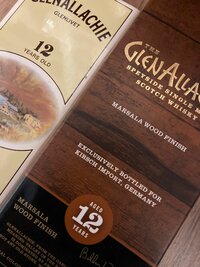What is the difference between whisky from the past and now

What is the difference between whisky from the past and now?
Whisky, a drink deeply rooted in the history of many cultures, has undergone a remarkable evolution over the centuries. From its humble beginnings as a local spirit to a globally acclaimed beverage, whisky has evolved and refined in line with changing tastes, technologies and market demands. In this blog we take a closer look at the difference between whisky of the past and present, and how this transformation has influenced the character of this beloved spirit.
Traditional craftsmanship versus Modern Innovation
In earlier times, whisky was mainly produced by small-scale distilleries dedicated to traditional methods. The process was labor intensive and heavily dependent on traditional craftsmanship. The raw materials were sourced locally, the barley was malted by hand, and the distillation took place in copper stills that were passed down for generations. This led to whiskys with a unique character, shaped by the geography, climate and skills of the distillers.
However, modern technologies have revolutionized whisky production. Major distilleries now use automated processes, stainless steel fermentation tanks and advanced equipment for maturing and blending whiskys. While this has helped ensure consistent quality and increased production capacity, some purists believe it has come at the expense of the unique flavor nuances and artisanal charm that used to characterize whisky.
Changes in Maturation and Blending
One of the most noticeable differences between whisky of the past and present can be found in the maturation process. Traditional distilleries often matured their whiskys for many years in oak barrels, which were previously used to store sherry, bourbon or wine. These barrels added complex flavor profiles to the whisky, with notes of vanilla, caramel and dried fruit.
However, modern distilleries have experimented with different types of barrels and aging methods, including using new oak barrels and applying different finishes, such as port or rum. This has led to a wide range of whiskys with diverse flavor profiles, which suit the preferences of an increasingly diverse audience.
The blending process has also evolved. In the past, whiskys were blended primarily to ensure consistency, with different casks mixed to create a uniform product. Today, however, we are seeing a growing interest in single malt whiskys and craft blends, which emphasize the unique properties of individual distilleries and casks.
Changing Consumer Preferences
In addition to technological and methodological changes, consumer tastes have also evolved. In earlier times, whisky was mainly consumed by a select group of enthusiasts, often middle-aged men, who preferred strong, smoky whiskys.
Today, the market for whisky has become much broader, with growing demand from both men and women of all ages and backgrounds. This diversity has led to greater demand for whiskys with a smoother profile, as well as experimental whiskys with unusual ingredients and finishes.
Conclusion
Over the centuries, whisky has transformed from a local spirit to a global phenomenon. Although the essence of whisky, namely its rich taste and complexity, has always been retained, there are still notable differences between whisky from the past and now. From traditional craftsmanship to modern innovation, from oak casks to experimental blends, whisky continues to adapt to the changing times and tastes, while maintaining its status as one of the world's most beloved drinks. Do you happen to have any old whiskey in the shed that you want to sell? Please contact us via sell your whisky.
Comments (0)
No comments found.












